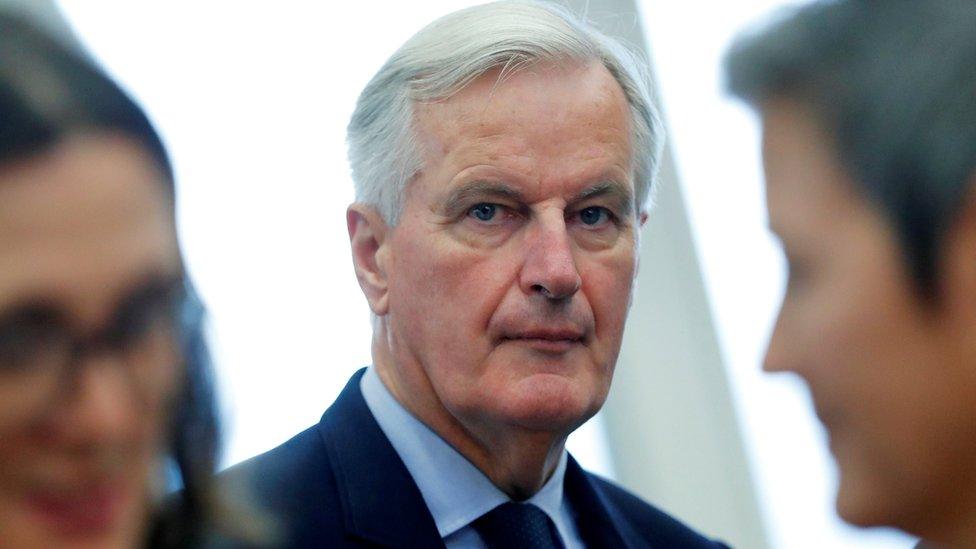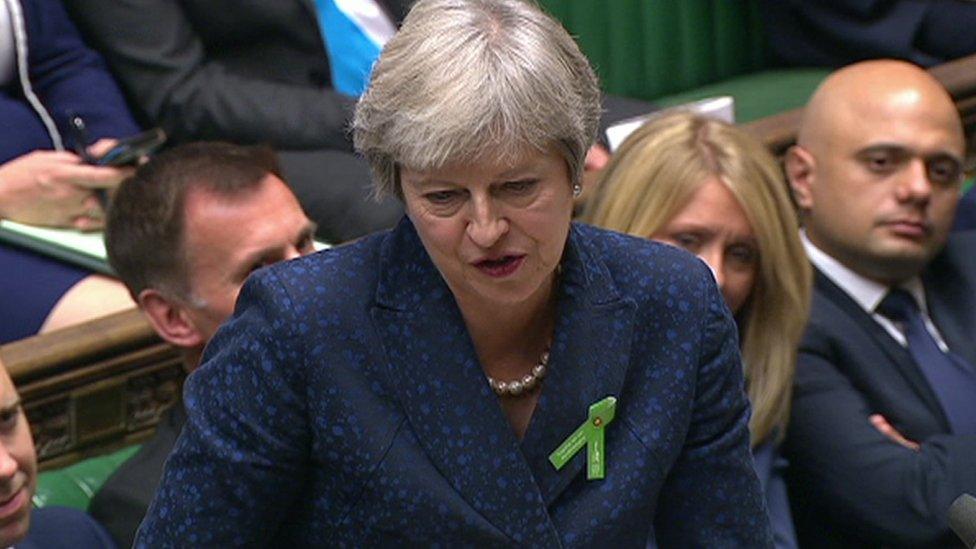Brexit negotiators working 'day and night' for agreement
- Published

Brexit negotiators are working "day and night" to try to reach a deal, the EU's Michel Barnier has said.
He said an agreement had to be "within our grasp" if talks are to conclude at next week's summit of European leaders.
He also warned that Theresa May's trade proposals would give UK companies a "huge competitive edge" over EU rivals.
His comments came as the Democratic Unionists indicated they were prepared to vote against the Budget if it is unhappy with the Brexit deal.
BBC Newsnight's Nick Watt said the Northern Ireland party would end its Parliamentary support for the prime minister if she agrees to anything that leads to additional checks between Northern Ireland and the rest of the UK.
Earlier Mrs May urged MPs to "put the national interest first" when deciding whether to approve the Brexit deal in a crunch vote likely later this year.
The UK and the EU have yet to strike a deal on how Brexit will work, with less than six months to go before the UK leaves on 29 March.
One of the key things they have not yet agreed is how to prevent there being new border checks between Northern Ireland and the Republic of Ireland, which is a member of the EU.
Allow X content?
This article contains content provided by X. We ask for your permission before anything is loaded, as they may be using cookies and other technologies. You may want to read X’s cookie policy, external and privacy policy, external before accepting. To view this content choose ‘accept and continue’.
There have been warnings that a so-called "hard border" will damage businesses and undermine peace in Northern Ireland.
Both the UK and the EU have resolved to put in place a "backstop" - which is a kind of insurance policy to prevent a hard border in case the final trade deal they agree does not do this.
Speaking to business leaders in Brussels, Mr Barnier said negotiators were "intensively" working to find a deal.
'Politically sensitive'
He said there would have to be checks on goods travelling to Northern Ireland from the rest of the UK, because they would effectively be arriving in the EU's single market if there was no hard border with the Republic of Ireland.
"I understand why such procedures are politically sensitive," he said, but added "Brexit was not our choice, it is the choice of the UK.
"Our proposal tries to help the UK in managing the negative fallout of Brexit in Northern Ireland in a way that respects the territorial integrity of the UK."
Mr Barnier said there were several areas of agreement with Mrs May's plans, published in a White Paper in July.
But he also set out key objections to her proposed new trading relationship which involves a UK-EU customs partnership and a "common rulebook" for goods travelling across the border.
This would lead to a loss of customs duty income for EU states, he said. And on the plans to align rules on goods, he added: "This type of single market system a la carte would be tantamount to giving a huge competitive edge to UK companies with respect to companies operating within the single market."
However, if an agreement could be reached, the EU will have 10 "parallel negotiating teams" ready to start drawing up the details straight after Brexit day, he added.
- Published10 October 2018

